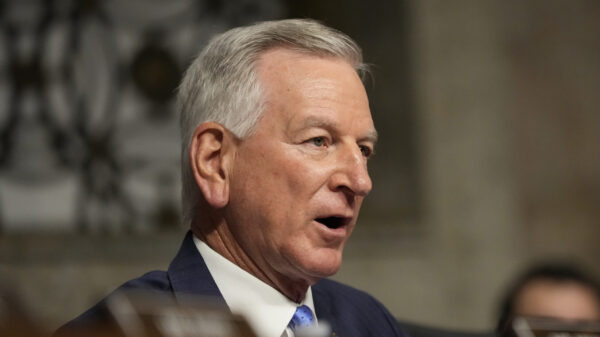By Chip Brownlee
Alabama Political Reporter
MONTGOMERY—Former Alabama Gov. Albert Brewer died Monday at 88. Brewer was governor for only a short period of time, but his administration, and his personality, left an impact on the State.
Gov. Robert Bentley confirmed Brewer’s death Monday afternoon.
“Alabamians have lost a great leader today in the passing of Governor Albert Brewer,” Bentley said. “He lived his life as an example of integrity and professionalism in public service, and displayed an unwavering commitment to making Alabama a great state.”
Brewer began his rapid rise as a statesman first as an ally of, then as a contrast to, former segregationist Gov. George Wallace. In 1958 at the young age of 28, Brewer was elected to the Alabama House of Representatives.
Four years later in 1962 while in his second term, Brewer — always a trailblazer — was elected Speaker of the House as the youngest leader of the Alabama House in the State’s history. At the time, he enjoyed Mr. Wallace’s approval, according to political historian Oscar Harper.
In 1966, the people of Alabama elected Brewer as their Lieutenant Governor with the Wallaces’ blessing. As lieutenant governor, Brewer served under Gov. Lurleen Wallace, the State’s first and only female governor who was elected to the post after her husband became ineligible for a third consecutive term as governor.
After little more than a year as governor, Ms. Wallace passed away in May 1968, at which time Brewer became the governor for the remainder of her term. During his 33 months as governor, Brewer championed many programs and initiatives that even today would be considered progressive.
Brewer continued Ms. Wallace’s commitment to reforming Alabama’s mental health system while simultaneously championing a large public education package that he helped to guide through the State Legislature 1969 with his charisma and charm, according to the Encyclopedia of Alabama.
His calm demeanor, charming personality and business-like attitude to government offered a stark contrast to Mr. Wallace.
The reform package gave public school teachers nearly a 13-percent raise in pay in a single year, upped education appropriations by more than $100 million over the next two years and, perhaps most notably, made funding appropriations more equitable between school districts. The package also began the first Alabama Commission for Higher Education.
Brewer also established the first State motor pool, which saved the state nearly a half million dollars a year, and left numerous executive positions vacant that had been used under previous governors to reward political allies.
Even though he began to stray from Wallace’s hard-line style of governance, Brewer remained popular with politicians and citizens of all positions on the political spectrum — thanks in large part to his former position as a Wallace ally, and, on the contrary, his moderate tone on race and other progressive policies.
In addition to fighting bloat and cronyism in Montgomery, Brewer also consistently fought for a more ethical State government by establishing the first Ethics Commission by executive order.
“I’m saddened to learn of the passing of Governor Albert Brewer,” said Selma Mayor Darrio Melton. “His work to expand educational opportunity, create a more ethical state government and reform our outdated Constitution will not be forgotten in generations to come.”
Perhaps the consistent theme in Brewer’s history as a legislator, lieutenant governor and governor was his commitment to reforming Alabama’s 1901 Constitution, which he believed disenfranchised black people and poor, working-class white people and concentrated too much power in the hands of Montgomery politicians. He continued that commitment to constitutional reform as a professor later in life at Samford University.
If Alabama ever had a “New South” Democratic governor, it was Brewer. The Alabama Democratic Party on Monday said on Monday that Brewer “set a high standard which others have attempted, but failed to reach.”
“Gov. Brewer was a trailblazer,” said Democratic House Minority Leader Craig Ford, Gadsden. “He is the youngest person to ever be elected Speaker of the House in the state Legislature, and he wasn’t afraid to stand up to the segregationist and work to make our state a better place for all Alabamians. He was a good man, and he will be greatly missed.”
After an objectively successful two years and some months as governor, Brewer announced he would run for his first elected term in 1969, unknowingly challenging Mr. Wallace to a political standoff. Brewer had believed that Wallace, who had just led a failed race-dominated campaign for president, would not run for governor again. He was wrong, though, and shortly before the filing deadline Wallace submitted his paperwork.
The 1970 campaign for the Democratic nomination for governor was filled with racial vitriol, most if not all of it from Wallace’s side. Wallace’s supporters painted Brewer as a “friend of the blacks,” which at the time hurt his support with the white working-class base of the then Alabama Democratic Party.
Brewer told the people of Alabama that they needed a “full-time governor” in his 1970 campaign, knocking Wallace for his near-constant campaigns for president. With his successful résumé, Brewer captured the support of many moderate white people, black people, liberals and even many Republicans, who saw Brewer as a moderate alternative to Wallace.
But Brewer, who refused to bash the Wallace campaign, fell victim to Wallace’s world-renowned race baiting. The Wallace campaign spread rumors about him and his family, published doctored photos of Brewer with controversial black activists and covered Brewer bumper stickers with their own stickers that said, “I’m for B&B: Brewer and the Blacks,” according to the encyclopedia. Some ads attacked Brewer as a sissy, accused his wife of being a drunk and falsely said his daughters had gotten pregnant by black men.
Even with the vitriol aimed at him, Brewer maintained his composure and never attacked Wallace until near the end of the campaign, and even then, his criticisms were aimed at Wallace’s administration, not him personally.
“We have lost an important piece of our history, as his family has lost their loved one,” said State Auditor Jim Zeigler Monday. “Albert Brewer would rather lose the race for governor than to demagogue the people of Alabama. He lost.”
At the end of the primary campaign, Brewer lost to Wallace by more than 30,000 votes. Later, he returned to his law practice in Decatur, where he was a renowned lawyer. He ran again for governor in 1978, but lost again to Fob James Jr. after evidence surfaced that he accepted more than $400,00 in secret contributions from President Richard Nixon’s campaign,
Brewer began a third career as a professor in 1987, joining the faculty of the Samford University Cumberland School of Law as a professor of law and government. There, he began the Public Affairs Research Council and the Institute for Ethics in Business and Government.
“The Samford University and the state of Alabama have lost a giant in the passing of Gov. Albert Brewer. He was loyal to the university, to his family, to his State and to his God and was the epitome of a Christian gentleman,” Samford University President Andrew Westmoreland said in a statement.
Brewer, who is the only person to ever serve as speaker of the house, lieutenant governor and governor in succession, died in Montgomery on Monday. He was preceded in death by his wife, Martha Farmer Brewer, who died in 2008. He had two daughters, Allison and Rebecca.

















































